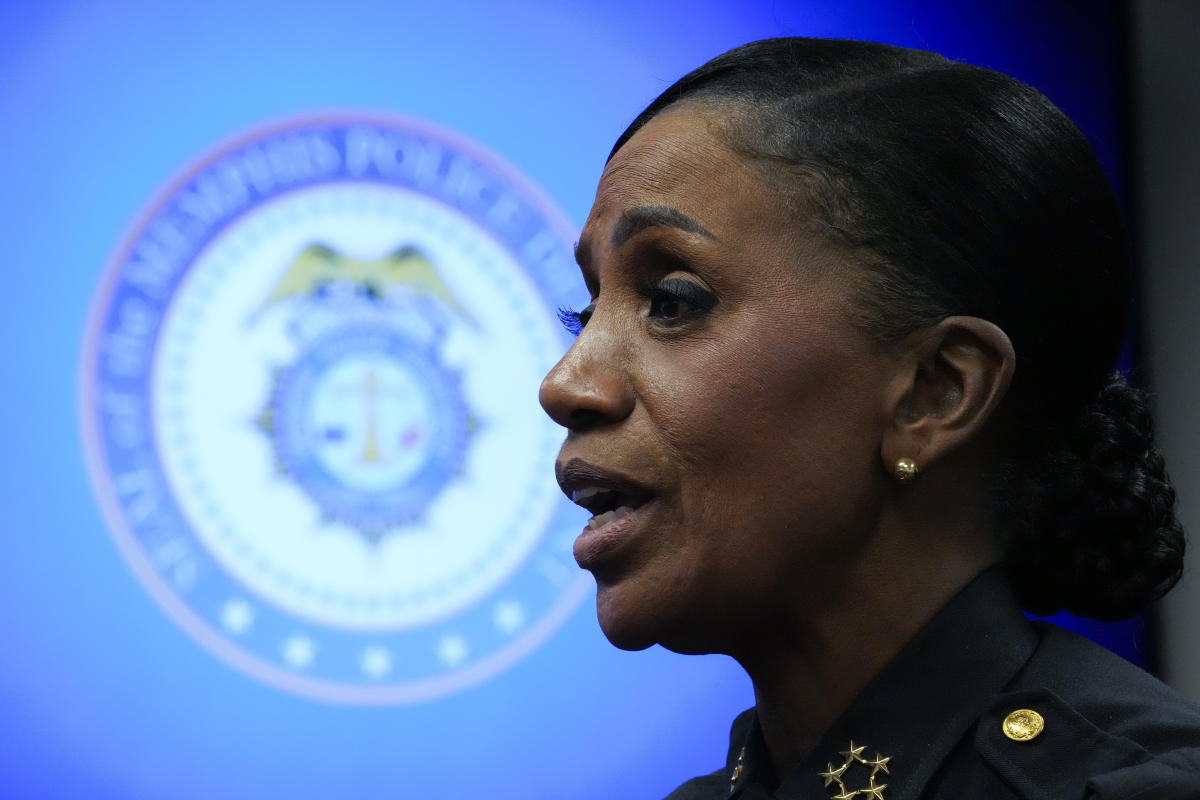on a Deadly Brew of Alcohol and Opioids.
MEMPHIS, Tenn. (AP) — Aside from the punches, kicks, swearing and pepper sprays, the video of the fatal arrest of Tire Nichols by young Memphis cops is just as notable for what’s missing — all the experienced officers showing up to stop them .
That points to a dangerous confluence of trends that the Memphis police chief acknowledged have haunted the department as the city became one of the country’s homicide hotspots: a chronic shortage of officers, particularly supervisors, a growing number of cops quitting and a struggle to hire qualified recruits.
Former Memphis Police Department recruiters told The Associated Press that a growing desperation to fill hundreds of positions in recent years has prompted the department to increase incentives and lower its standards.
“They would allow pretty much anyone to be a cop because they just want those numbers,” said Alvin Davis, a former lieutenant in charge of recruiting before retiring in frustration last year. “You’re not ready for this.”
The department offered new recruits $15,000 in signing bonuses and $10,000 in relocation allowances while gradually eliminating the requirements of having either college credits, military service, or prior police work. All that is required now is two years of professional experience – any professional experience. The department also sought state waivers to hire applicants with criminal records. And the police academy even dropped the time requirements for physical fitness exercise and removed running entirely because too many people were failing.
“I asked them what made you want to be a cop, and they’ll be honest — they’ll tell you it’s all about the money,” Davis said, adding that many recruits would ask how long they have actually serve at least would have to keep the bonus money. “It’s not a career for them like it is for us. It’s just a job.”
Another former patrol officer-turned-recruiter who recently left the department told the AP that recruits are being recruited not only from other law enforcement agencies and college campuses, but increasingly from jobs at McDonald’s and Dunkin’ Drive-Thrus.
In one case, a stripper proposed. And while she wasn’t hired, it reinforced the message that “anybody can get this job.” You could have any kind of experience and be the police.”
“There were red flags,” said the former recruiter, who spoke on condition of anonymity to discuss staffing and hiring. “But we’re so far down the pyramid that nobody really hears the little person.”
Many junior officers, before ever meeting more experienced colleagues, found themselves in specialized units like the now-defunct High Crime Task Force SCORPION, which was involved in Nichols’ arrest. Their lack of experience was shocking to veterans, who said some junior officers who transition back to patrol don’t even know how to write a ticket or answer a domestic call.
“They don’t distinguish a felony from a misdemeanor,” Davis said. “They don’t even know right from wrong.”
The Memphis Police Department did not respond to requests for comment about their hiring standards.
Of the five officers on the SCORPION team now charged with second-degree murder in Nichols’ January 7 beating, two had only been on the job a few years and none had more than six years’ experience.
One of the officers, Emmitt Martin III, 30, a former tight end on the Bethel University football team, appears to have been arrested at least once, according to files from the Peace Officers Standards and Training Commission, a state regulatory agency. But the date and details of the case have been redacted.
The arrests section of the agency’s record for another officer, Demetrius Haley, 30, who worked at a Shelby County Corrections Facility before joining the force, was also redacted from state records. Haley was sued for allegedly hitting an inmate there, which he denied, and the case was dismissed because the papers had not been properly served.
“If you lower the standards, you can predict that you’re going to have problems because we’re recruiting from the human race,” said Ronal Serpas, former chief of the Nashville and New Orleans Police Department and the Washington State Patrol. “There’s such a small number of people who want to do this, and an infinitesimally small number of people that we actually want to do it.”
In many ways, Memphis is a microcosm of the myriad crises facing the American police force. Departments from Seattle to New Orleans are struggling to fill their ranks with qualified officers amid a national movement of increasing scrutiny and calls for reform in the wake of the 2020 killing of George Floyd.
The increase in staffing was a key goal for Memphis Police Director Cerelyn Davis when she took office in June 2021. Her department said it is targeting an increase in personnel from 2,100 to 2,500, almost the size of the force a decade ago. Instead, police ranks have fallen to 1,939 officers — like the city, mostly black — even as the population has increased and the number of murders has surpassed 300 in each of the past two years.
A large part of the reason for the dwindling ranks is that more than 1,350 officers have either resigned or retired in the last decade — more than 300 in the last two years alone.
In an interview with the AP last week, Davis said a shortage of supervisors was a particular problem, noting that 125 new supervisor spots had been approved by the city but still hadn’t been filled.
Davis said the department is investigating, among other things, why a supervisor didn’t respond to Nichols’ arrest, even though department policy requires a senior officer if pepper spray or a stun gun was used.
“If that happened, someone could have been there to intercept what happened,” Davis said.
“Culture eats politics for lunch in police departments,” she added. “If you don’t have the checks and balances, you’re going to have problems.”
Michael Williams, former head of the Memphis Police Association, the officers’ union, said close surveillance is essential, especially for specialized teams like SCORPION.
“Why would you have an elite task force that you know is designed for aggressive policing and you’re not covering your bases? Maybe they have to shoot someone. You may have to kick down someone’s door. They may have to physically hold someone down,” Williams said. “You should have had experienced people around to hold them back and keep them from going down a dark path.”
Longtime Memphis Police Department observers say this isn’t the first time a department with a history of civil rights abuses has been hit with the bill.
Following the 2015 death of Darrius Stewart, a 19-year-old black man who was fatally shot by a white police officer, activist and US Rep. Steve Cohen, a Tennessee Democrat, he urged the US Department of Justice to issue a ” pattern or a practice” to perform. Investigation of civil rights violations in the department. Such requests often lead to far-reaching reforms, including staff and training overhauls.
Carlos Moore, an attorney for Stewart’s family, warned the Justice Department at the time about a deadly trend that preceded Stewart’s death. “Since 2009, there have been over 24 suspected killings of civilians by Memphis Police Department officers,” he wrote in a 2015 letter obtained by the AP, “and not a single officer has been charged with killing unarmed, mostly black, young men.” .”
The Justice Department decided not to open such an investigation for reasons it did not explain at the time and declined to comment this week.
“The Justice Department missed a golden opportunity to thoroughly investigate the Memphis Police Department,” Moore said in an interview. “It was just as corrupt then as it is now.”
Thaddeus Johnson, a former Memphis police officer who is now a professor of criminal justice at Georgia State University, said the missed opportunity for federal intervention made it possible for the department’s problems — rising crime, community distrust and chronic understaffing , to fester until they exploded.
“A deadly brew has come together,” he said. “But the same mixture is also in many other places where the bubble has not yet burst.”
___
Condon and Mustian reported from New York
___
Contact AP’s global investigative team at [email protected] or
Don’t miss interesting posts on Famousbio










